I could summarise this review very easily by saying that the Mizuno JPX919 Hot Metal Pro iron is a more compact version of the Mizuno JPX919 Hot Metal iron launched less than 6 months ago.
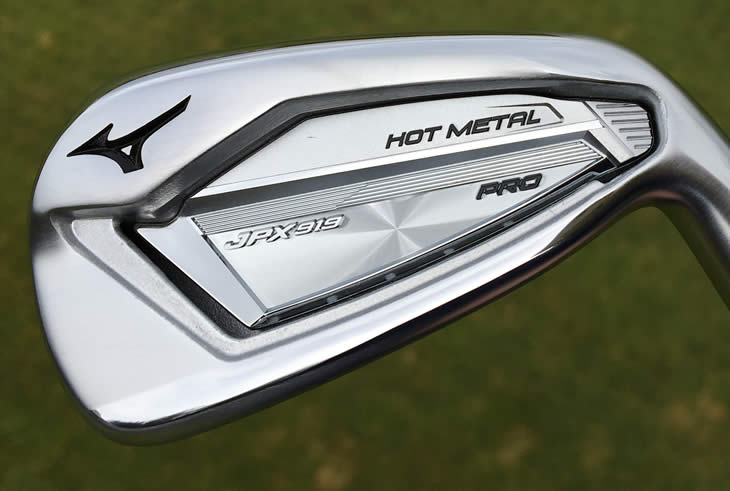
Of course you will want to know how it compares and why they have done this, so let's dive into the detail.
Mizuno claim that the JPX919 Hot Metal Pro iron is a reaction to better players shifting to the Hot Metal irons, which is what I suggested doing in my review by adding in some of the longer Hot Metal irons to your JPX919 Forged set.
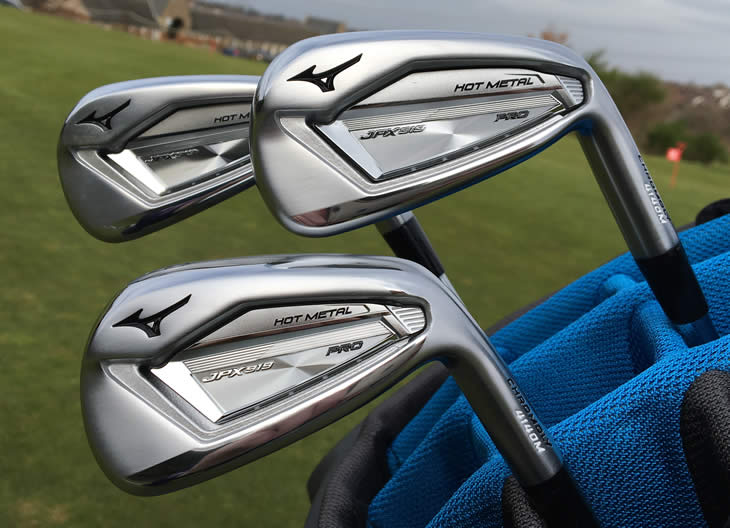
However 5 months is a quick reaction in manufacturer land, so maybe they had the Pro model planned all along to release later, which might upset those recent customers who were between the Forged and Hot Metal models.
The JPX919 Hot Metal Pro has the same compact head size as the Forged, but it is cast manufacture.
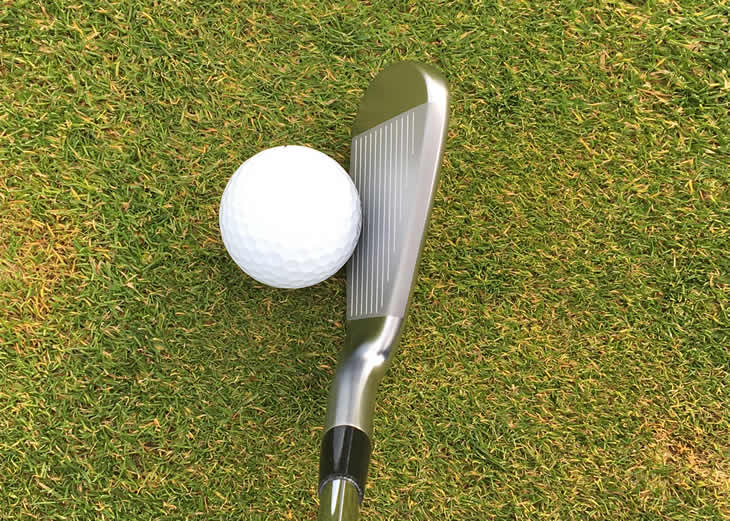
The Hot Metal Pro head is made from the same Chromoly 4140M steel alloy of chromium and molybdenum that the standard Hot Metal is made from.
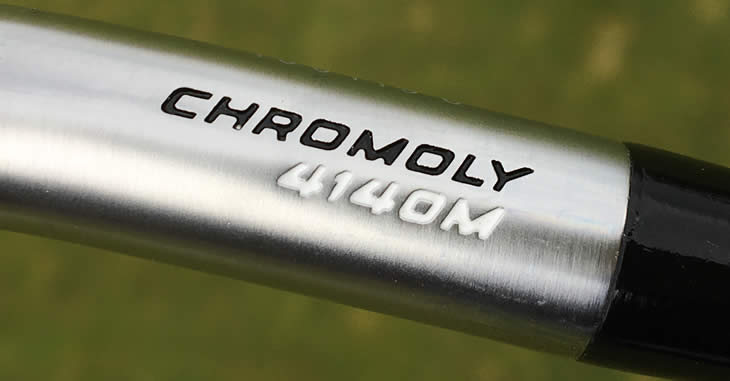
This is a stronger steel that means the face can be made thinner to generate more ball speed.
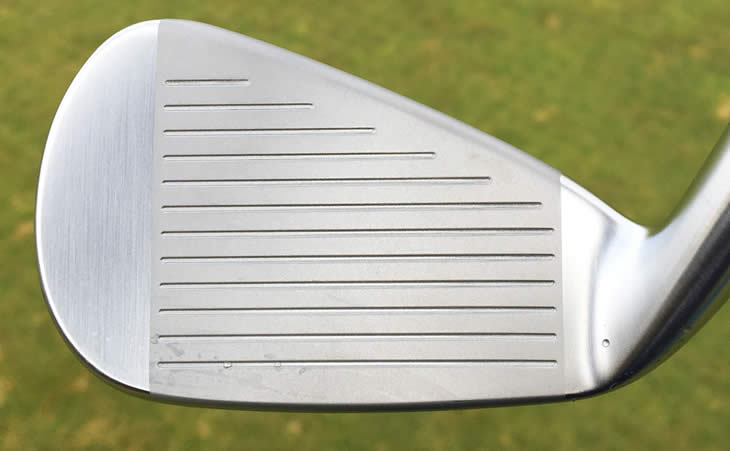
The heads are cast rather than forged in order to create the Stability Frame structure, which uses a cutaway section in the heel to save weight and improve the MOI.
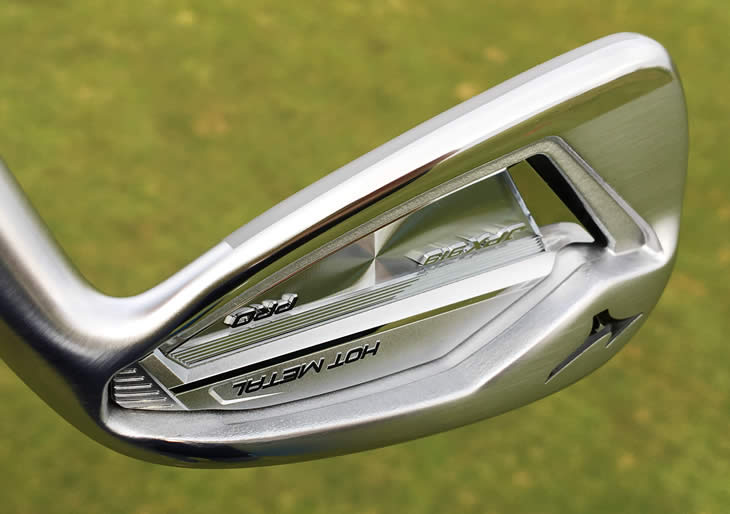
At address you can see that the Pro top line is thinner with less offset than the Hot Metal version and this is really the main difference between the models.
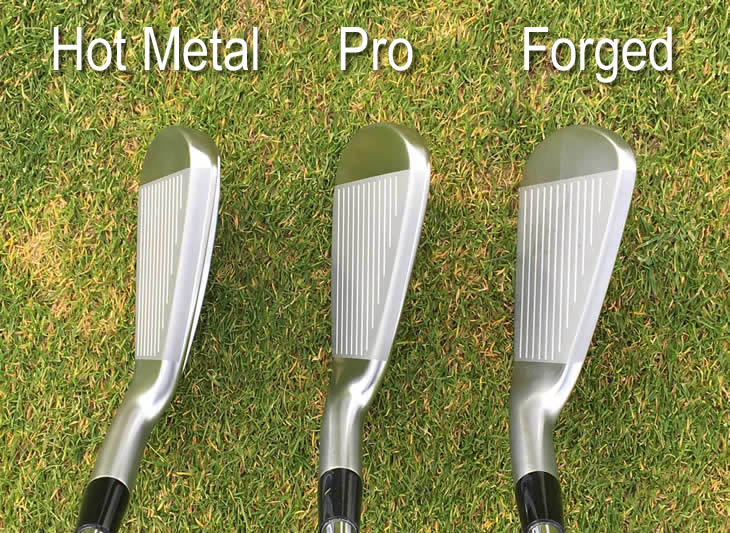
This puts it closer to the style of the Forged head, but the topline is still fractionally wider, as is the sole, although the trailing edge relief on the Pro makes it play a little narrower than the standard Hot Metal.
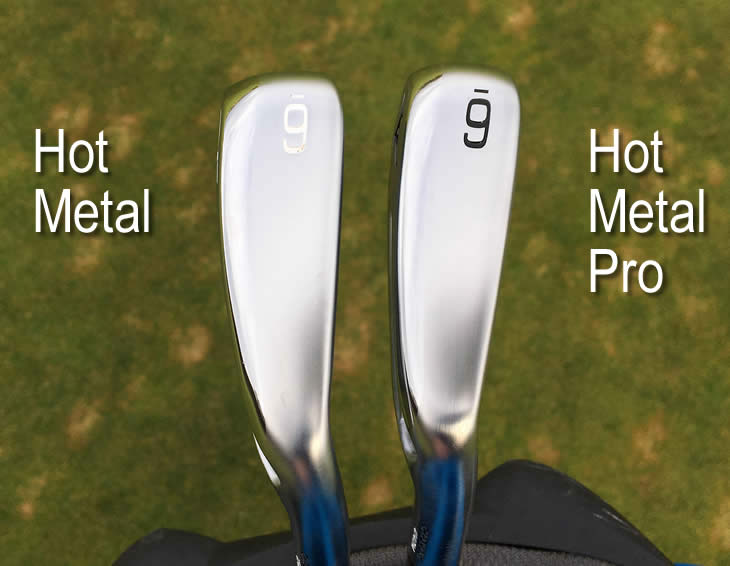
The Pro also has a little more polished chrome on it, which I think makes it look classy and the paint fill on the logo returns to make the Pro stand out from the other JPX919 models.
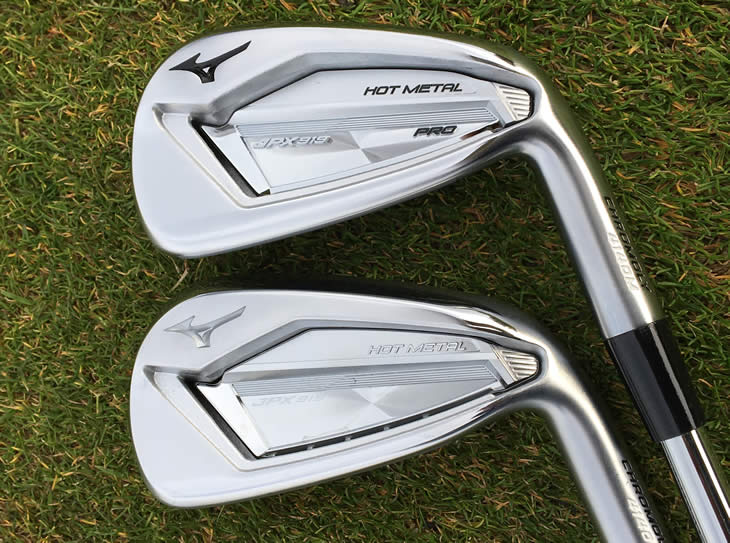
Taking all three models on GC2 with Pro V1x balls, you could easily see the differences.
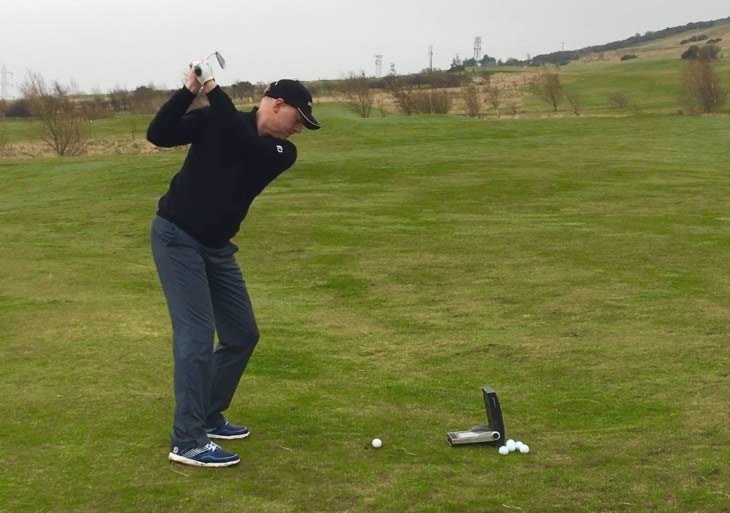
The Hot Metal models were generating more ball speed than the Forged for me. The standard model was the fastest on average, probably because the larger head was creating a bigger sweet spot, so that off centre hits were not losing quite as much ball speed.
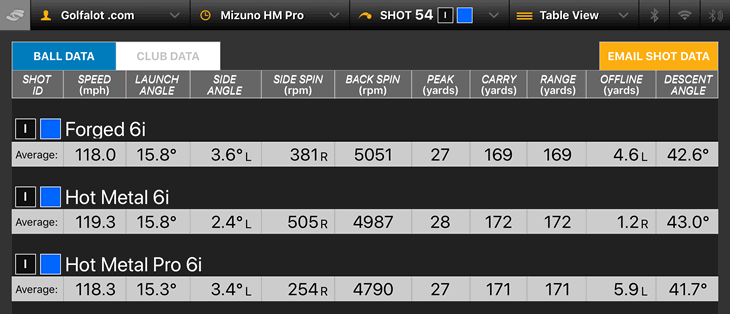
The standard model was only slightly ahead of the Pro model in distance due to the extra 1 yard peak height and 200rpm spin from the deeper head and CG position.
This is the basis of the difference between the Hot Metal models. As the heads get more compact and cavity gets smaller, then the spin will reduce and they fly a little lower.

Both were ahead of the JPX919 Forged for a couple of reasons. Firstly the Hot Metal 6 irons are 2º stronger in loft, so the ball speed will be greater from the straighter face.
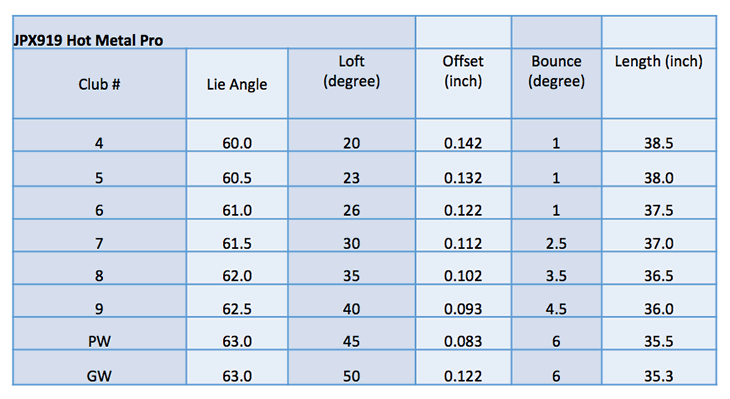
Secondly, the Forged heads will be a little softer than the cast Hot Metals. This means that the ball stays on the face of the Forged a little longer and will increase the spin, thus reducing the distance.
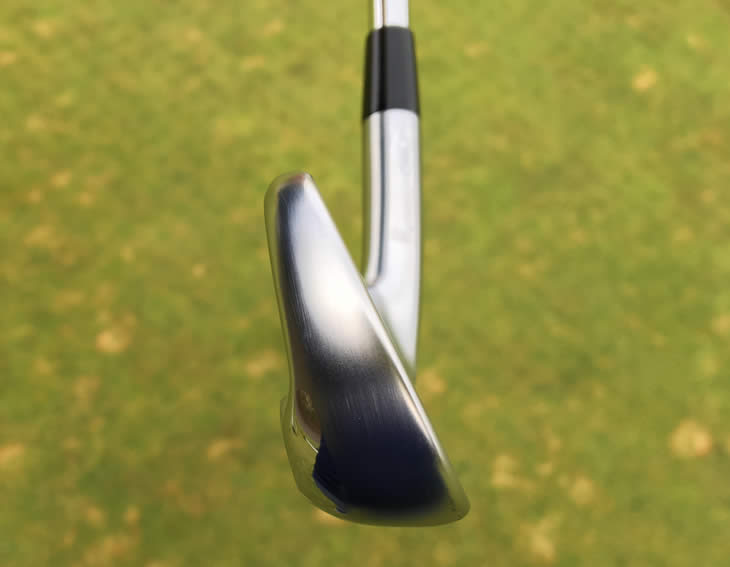
Taking these factors into account then the JPX919 Forged do fare very well for distance by comparison. However, for the same number on the sole you will probably gain half club in distance with the Hot Metal Pro.
Mizuno JPX919 Hot Metal Pro Irons Verdict
Reaching a verdict on the Hot Metal Pro irons is tough as it depends on which angle you are coming at them from.
As a stand alone product, it is there to compete with the compact, premium, fast, high tech, hollow irons out there like the TaylorMade P790, Ping i500 and Titleist 718 T-MB. In this respect it stacks up very well.
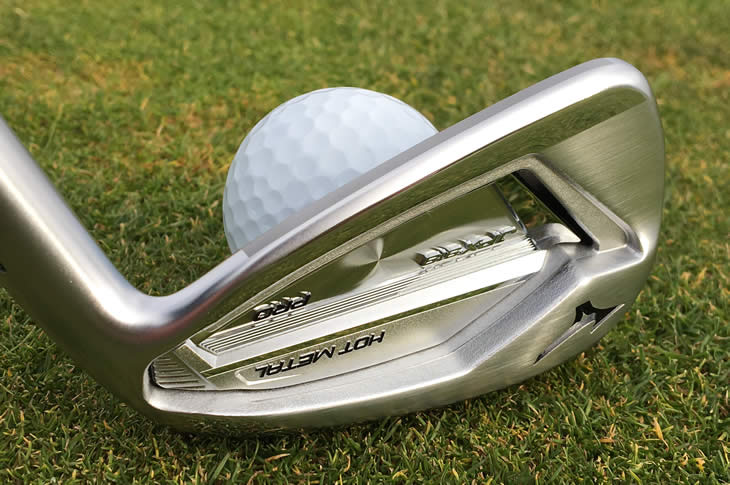
It offers the ball speed and distance to compete with some of the longest low to mid handicapper irons in the market, at a price that is very competitive. Most of these other models are over £1000 for seven irons, but the Mizuno Hot Metal Pro comes in at least £150 cheaper.

It looks better than most of them too, so I would say that in this category the Hot Metal Pro are the ones to go for.
However within the Mizuno JPX919 range I am less sure. The JPX919 Forged irons have almost the same 'speed per degree of loft', but with more feel, even if they are less forgiving. Lower handicaps will probably go for them, particularly if they need more spin on their iron approaches.
The standard JPX919 Hot Metal is ideal for the mid handicappers, as they look like a players iron with all the speed performance and extra forgiveness built in.
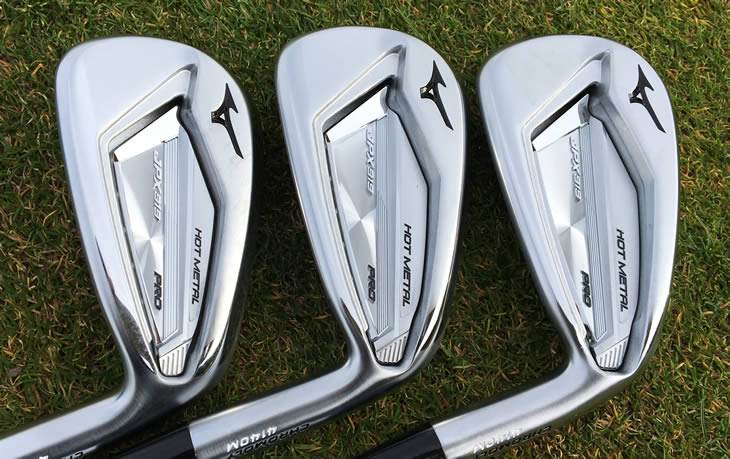
The JPX919 Hot Metal Pro as a full set probably fits in between the two for a small niche of high single figure handicaps.
I can see the Hot Metal Pro being used more as a blending set than a single set purchase. Either to add more forgiving longer irons to a Forged set, or more compact short and mid irons to a Hot Metal set.
So for me there is a bit of overlap with the Hot Metal Pro as a product in the JPX919 range. However, it is a great club that I am sure will find it’s place in the market as a stand alone range and in the hands of more Mizuno players as part of a combo.